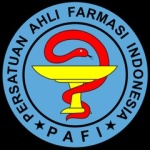Peningkatan Pengetahuan Pasien Strok Melalui Penerapan Aplikasi Sahabat Pasien
Abstract
Prevalensi kasus strok yang cukup tinggi di Indonesia memerlukan pengelolaan kesehatan bagi penderitanya. Pengelolaan kesehatan mandiri akan mengurangi tingkat kecacatan serta meningkatkan kualitas hidup pasien dengan kondisi strok. Pemberian edukasi kesehatan menggunakan aplikasi dinilai efektif karena dapat menggunakan media audio visual yang dapat diakses oleh pasien dan keluarga di mana saja. Aplikasi Sahabat pasien strok dirancang dan diisi dengan poster serta video edukasi tentang strok dan perawatan mandiri di rumah pasca-strok. Edukasi kesehatan diberikan kepada peserta Pos Pembinaan Terpadu di wilayah Puskesmas Kendalkerep menggunakan aplikasi Sahabat Pasien Stroke. Peserta dan kader dilatih tentang cara penggunaan aplikasi tersebut. Pengukuran pengetahuan dilakukan sebelum dan sesudah pemberian edukasi. Terdapat peningkatan jumlah lansia yang memiliki pengetahuan tinggi dari 22,2% menjadi 85,2%. Selain itu, sekitar 74,1% peserta mengalami peningkatan pengetahuan sebagian dan 7,4% mengalami peningkatan pengetahuan yang cukup tinggi. Kesimpulannya penggunaan aplikasi Sahabat Pasien Stroke ini efektif dalam meningkatkan pengetahuan pasien dan keluarganya.
Keywords
Full Text:
PDFReferences
Broomfield N, Scoular A, Welsh P, Walters M, Evans J. (2015) Poststroke anxiety is prevalent at the population level, especially among socially deprived and younger age community stroke survivors. Int J Stroke, 10:897–902
Ce, F., Ja, L., Mn, M.,& Sl, H.(2016). Self management programmes for quality of life in people with stroke (Review) Summary of Findings For The Main Comparison,(8),1-2.https://doi.org/10.1002/14651858.
Chapman, B & Bogle, V. (2014). Adherence to medication and self management in stroke patients. Br J Nurs, 23(3):158-166
Chen, L., Chen, Y., Chen, X., Shen, X.,Wang, Q., & Sun, C. (2018). Longitudinal Study of Effectiveness of a Patient-Centered Self Management Empowerment Intervention During Predischarge Planning on Stroke Survivors. Worldviews on Evidence-Based Nursing, 15(3), 197–205.https://doi.org/10.1111/wvn.12295
Choliq, I., Nasrullah, D., & Sukadiono, S. (2020). Role of family in caring patient with post stroke at home: a systematic review. International Journal of Psychosocial Rehabilitation, 24(8), 11004-11013.
Creasy, K. R., Lutz, B. J., Young, M. E., & Stacciarini, J. M. (2015). Clinical Implications of Family-Centered Care in Stroke Rehabilitation. Rehabilitation nursing : the official journal of the Association of Rehabilitation Nurses, 40(6), 349–359. https://doi.org/10.1002/rnj.188
Fletcher, S., Kulnik, S. T., Demain, S., & Jones, F. (2019). The problem with self-management: Problematising self-management and power using a Foucauldian lens in the context of stroke care and rehabilitation. PLoS ONE, 14(6), 1–21. https://doi.org/10.1371/journal.pone.0218517
Guan, F. G., Wang, M., & Lian, X. Q.(2018). The status quo and influence of self-management behaviors in convalescent stroke patients. Frontiers of Nursing, 5(2), 119–125. https://doi.org/10.2478/fon-2018-0016
Jones, F., Gage, H., Drummond, A., Bhalla, A., Grant, R., Lennon, S., Liston, M. (2016). Feasibility study of an integrated stroke selfmanagement programme: A cluster randomised controlled trial. BMJ Open, 6(1), 1–10. https://doi.org/10.1136/bmjopen-2015-008900
Lee, D., Fischer, H., Zera, S., Robertson, R., & Hammel, J. (2017). Examining a participation-focused stroke self-management intervention in a day rehabilitation setting: A quasi-experimental pilot study. Topics in Stroke Rehabilitation, 24(8), 601–607. https://doi.org/10.1080/10749357.2017.1375222
Noel HC, Vogel DC, Erdos JJ, Cornwall D, Levin F. Home telehealth reduces healthcare costs. Telemed J E Health 2004 Jun;10(2):170-183. [CrossRef] [Medline]
Patel, M.D., Tilling, K., Lawrence, E et al. (2006). Relationship between long-term stroke disability, handicap and health-related quality of life. Age and Ageing, 35, 273-279
Pearce, G., Pinnock, H., Epiphaniou, E., Parke, H. L., Heavey, E., Griffiths, C. J. Taylor, S. J. C. (2015). Experiences of self-management support following a stroke: A metareview of qualitative systematic reviews. PLoS ONE, 10(12), 1–17. https://doi.org/10.1371/journal.pone.0141803
Sit, J. W. H., Chair, S. Y., Choi, K. C.,Chan, C. W. H., Lee, D. T. F., Chan,A. W. K., Taylor-Piliae, R. E.(2016). Do empowered stroke patients perform better at self-management and functional recovery after a stroke? A randomized controlled trial. Clinical Interventions in Aging, 11, 1441–1450.https://doi.org/10.2147/CIA.S109560
World Health Organization. (2011) Global status health report on noncommunicable diseases 2010. Geneva: WHO
DOI: https://doi.org/10.21776/ub.jtridharma.2023.003.01.44
Refbacks
- There are currently no refbacks.
Copyright (c) 2023 TRI DHARMA MANDIRI: Diseminasi dan Hilirisasi Riset kepada Masyarakat (Jurnal Pengabdian kepada Masyarakat)















